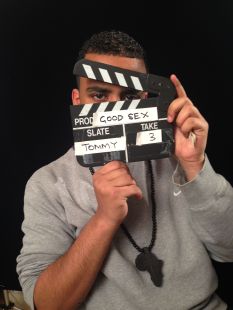‘ I always discuss pleasure when I have time in my school sessions as its vital that young people don’t just grow up being taught that sex is bad, dangerous, scary etc. SRE can almost feel like it teaches that we must protect girls from sex starved boys and that diseases and unwanted pregnancy are lurking round every corner. It needs to be made clear that sex with the right partner and at a time when you are ready should be fun, lovely and enjoyable’ (Survey respondent).
Over the past 6 years I have been talking to youth workers, social workers, sex educators, nurses and doctors and asking if they think sexual pleasure should be included in sex education and sexual health services for young people. Almost everyone I have met says yes. When I go on to ask how they would do this in practice, many shrug, laugh or tell me that they have no idea! When I conducted a survey of practitioners in North London in 2010, 90% said ‘yes’ – pleasure should be included in sex education and sexual health services for young people. Very few had received any training however or could recommend any good resources to use. When I asked if they had any concerns about including pleasure in SRE or sexual health services, respondents pointed to potential problems managing professional boundaries and potential negative responses from colleagues, parents and school governors. If not done well, respondents noted, young people and practitioners would be embarrassed and the work could be seen as encouraging young people to ‘do it’.
Schools [might be] wary of including sexual pleasure – they think this may be interpreted as ‘promoting sexual activity’. Some young people [might be] embarrassed talking about sex and pleasure – without SRE from an early age often young people lack the skills and language to discuss pleasure’ (Survey respondent).
For 90% of respondents, and the majority of people I have talked to over the past 6 years who work in this field, these concerns do not mean that the work should not be done. It means however that we need shifts in policy and social attitudes and good training and resources for practitioners to use.
The ‘good sex’ project was created to address this gap and to provide practitioners with some tools, training and resources to engage in this area of work. As part of this project documentary film maker Susi Arnott and I have been interviewing youth workers, clinicians, educators, researchers and young volunteers about why it is important to talk to young people about sex and pleasure and asking them how to do this in practice. We have hours of footage of people talking passionately about why this area of work is so important and have edited these 11 short clips that give you 11 reasons why it is important to talk to young people about sex and pleasure. We are looking for reason 12 so if you can think of one we have left out – please get in touch!
Like the practitioners I surveyed nearly 5 years ago, many of the people we interviewed to were less sure how to engage in pleasure work in practice. This, said Steve Slack from the Centre for HIV and Sexual health, is the 100 million dollar question that we need to – very carefully – address. Some people that we interviewed were more confident and suggested that work is not as complicated or as challenging as we might think it is. Here are there ideas edited into 10 short films about how youth, education and health practitioners can introduce discussion of pleasure into a consultation or an outreach session. There are many more ways that you could do this work (the Centre for HIV and Sexual Health have come up with 30!) and we hope that these films will encourage others to share their best and amazing practice with others.
Thanks to everyone who appears in this film and to all those who have shared their ideas and suggestions with me over the years.
#2 Find a language that works for you
#3 Give young people the opportunity to ask questions
#4 Try asking some simple exploratory questions
#5 Use some of the great resources out there already
#6 Try one of these activities – or develop your own!
#7 Include discussion of pleasure in condom sessions
#8 Support and train young people to be social activists and lead their own campaigns.





videos come up as private…..
Thanks Rachel. All sorted now and publicly available.